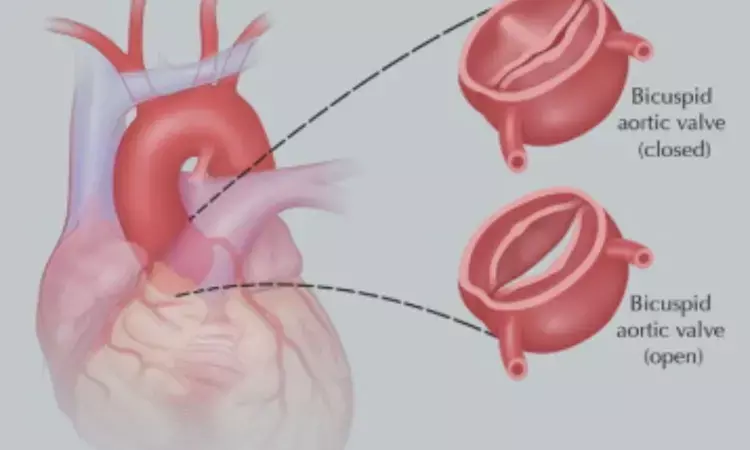- Home
- Medical news & Guidelines
- Anesthesiology
- Cardiology and CTVS
- Critical Care
- Dentistry
- Dermatology
- Diabetes and Endocrinology
- ENT
- Gastroenterology
- Medicine
- Nephrology
- Neurology
- Obstretics-Gynaecology
- Oncology
- Ophthalmology
- Orthopaedics
- Pediatrics-Neonatology
- Psychiatry
- Pulmonology
- Radiology
- Surgery
- Urology
- Laboratory Medicine
- Diet
- Nursing
- Paramedical
- Physiotherapy
- Health news
- Fact Check
- Bone Health Fact Check
- Brain Health Fact Check
- Cancer Related Fact Check
- Child Care Fact Check
- Dental and oral health fact check
- Diabetes and metabolic health fact check
- Diet and Nutrition Fact Check
- Eye and ENT Care Fact Check
- Fitness fact check
- Gut health fact check
- Heart health fact check
- Kidney health fact check
- Medical education fact check
- Men's health fact check
- Respiratory fact check
- Skin and hair care fact check
- Vaccine and Immunization fact check
- Women's health fact check
- AYUSH
- State News
- Andaman and Nicobar Islands
- Andhra Pradesh
- Arunachal Pradesh
- Assam
- Bihar
- Chandigarh
- Chattisgarh
- Dadra and Nagar Haveli
- Daman and Diu
- Delhi
- Goa
- Gujarat
- Haryana
- Himachal Pradesh
- Jammu & Kashmir
- Jharkhand
- Karnataka
- Kerala
- Ladakh
- Lakshadweep
- Madhya Pradesh
- Maharashtra
- Manipur
- Meghalaya
- Mizoram
- Nagaland
- Odisha
- Puducherry
- Punjab
- Rajasthan
- Sikkim
- Tamil Nadu
- Telangana
- Tripura
- Uttar Pradesh
- Uttrakhand
- West Bengal
- Medical Education
- Industry
Atorvastatin fails to slow aortic dilatation and valvular calcification progression in bicuspid aortic valve: BICATOR Trial

Spain: In a significant stride toward managing aortic health, a recent randomized clinical trial, BICATOR (Bicuspid Aortic Valve), has uncovered findings regarding the efficacy of atorvastatin in slowing the progression of aortic dilatation and valvular calcification in individuals with bicuspid aortic valve (BAV) disease.
The study, published in Circulation, found that atorvastatin treatment failed to reduce the progression of ascending aorta dilation and aortic valve calcification in bicuspid aortic valve without severe valvular dysfunction patients during three years of treatment, despite a significant reduction in low-density lipoprotein (LDL) cholesterol levels.
BAV, a condition where the aortic valve has two leaflets instead of the typical three, affects approximately 1-2% of the population and predisposes individuals to a spectrum of cardiovascular complications, including aortic dilatation and valvular calcification. These complications often necessitate invasive interventions like valve replacement surgeries and are associated with increased morbidity and mortality.
Arturo Evangelista, Vall d’Hebron Institut de Recerca (VHIR), Barcelona, Spain, and colleagues aimed to determine if atorvastatin treatment is effective in reducing the growth of aortic diameters in bicuspid aortic valve and if it slows the valve calcification progression.
For this purpose, the researchers included 220 patients with bicuspid aortic valve (43 women; 46±13 years of age) in a randomized clinical trial and treated with either 20 mg of atorvastatin per day or placebo for 3 years.
Inclusion criteria were ≥18 years of age, nonsevere valve calcification, nonsevere valvular dysfunction, and ascending aorta diameter ≤50 mm. Computed tomography and echocardiography studies were performed at baseline and following 3 years of treatment.
The researchers reported the following findings:
· During follow-up, 12.7% of patients discontinued medical treatment (15 on atorvastatin and 13 taking placebo). Thus, 192 patients completed the 36 months of treatment.
· LDL cholesterol levels decreased significantly in the atorvastatin group (median, −30 mg/dL versus 6 mg/dL).
· The maximum ascending aorta diameter increased with no differences between groups: 0.65 mm in the atorvastatin group and 0.74 mm in the placebo group.
· There were no significant differences in the progression of the aortic valve calcium score or valvular dysfunction.
The findings showed that among patients with bicuspid aortic valve without severe valvular dysfunction, atorvastatin treatment was ineffective in reducing the progression of aortic valve calcification and ascending aorta dilation during three years of treatment despite a significant reduction in LDL cholesterol levels.
"Our study provides compelling evidence that atorvastatin is not effective in mitigating the cardiovascular complications associated with bicuspid aortic valve disease."
Reference:
https://www.ahajournals.org/doi/abs/10.1161/CIRCULATIONAHA.123.067537
Dr Kamal Kant Kohli-MBBS, DTCD- a chest specialist with more than 30 years of practice and a flair for writing clinical articles, Dr Kamal Kant Kohli joined Medical Dialogues as a Chief Editor of Medical News. Besides writing articles, as an editor, he proofreads and verifies all the medical content published on Medical Dialogues including those coming from journals, studies,medical conferences,guidelines etc. Email: drkohli@medicaldialogues.in. Contact no. 011-43720751


